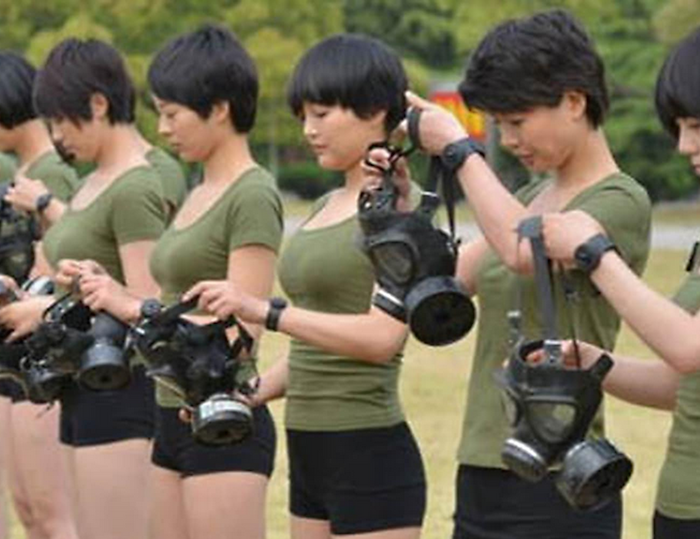
A life of fear and terror. Millions of people in North Korea are exposed to a drastic form of oppression and severe violations of almost all their human rights. In January 2013, UN High Commissioner for Human Rights Navi Pillay said that the human rights situation in North Korea is among the worst in the world! In my contribution I will list 10 facts that will throw you into a “roller coaster of emotions”. From anger to sadness to impotent despair.
I was very moved by this contribution. Especially because hundreds of thousands of people, including children, are currently being held arbitrarily in political prison camps and other detention facilities. There they are at the mercy of human rights violations such as forced labour, refusal to eat as punishment, torture and public executions. If people are punished, this reaches up to the 3rd generation. Prison camps are among the toughest in the world. Isolation, suppression. Anything but freedom. In “holy light”.
1. the Democratic People’s Republic of Korea
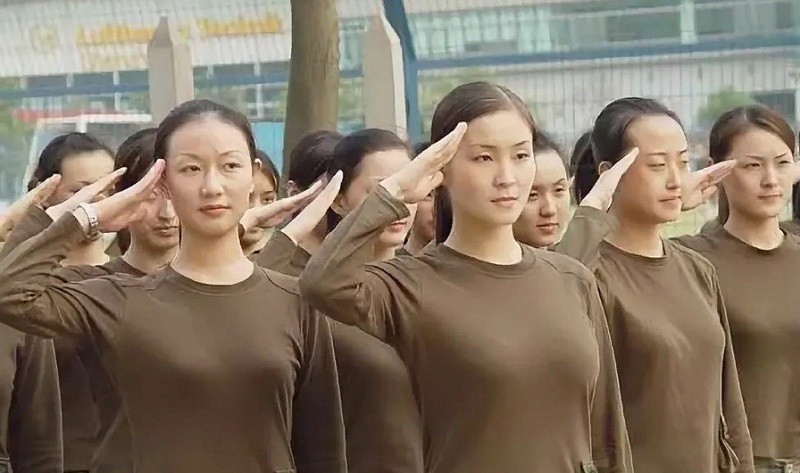
The leader Kim Jong-un, born in Pyongyang on 8 January 1984, is the Chairman of the Committee for State Affairs of the DPRK, Commander-in-Chief of the Korean People’s Army and Chairman of the Workers’ Party of Korea and, since 29 December 2011, the so-called “Supreme Leader” of the Democratic People’s Republic of Korea (“North Korea”). After his father died, Kim Jong-un followed in the leading positions. He had already been appointed General on 27 September 2010. On 18 July 2012, he was promoted to the rank of Marshal, giving the young leader the same military rank as his late father last held.
It should be emphasized that the leader Kam Jong-un spends a fortune on his army: Nuclear missiles, submarines, big tanks, lethal weapons, and not all that. All citizens over the age of 18 are forced to join the army, even women. A stream of power and domination. In this context: On 10 February 2016 South Korean media reported that the head of the general staff Ri Yong-gil had been executed. Ri had not been seen in public since the beginning of the year. He had been accused of corruption and the “formation of conspiratorial groups”. The reports were initially not commented on by the North Korean side.
2. people from western countries cannot move alone in North Korea
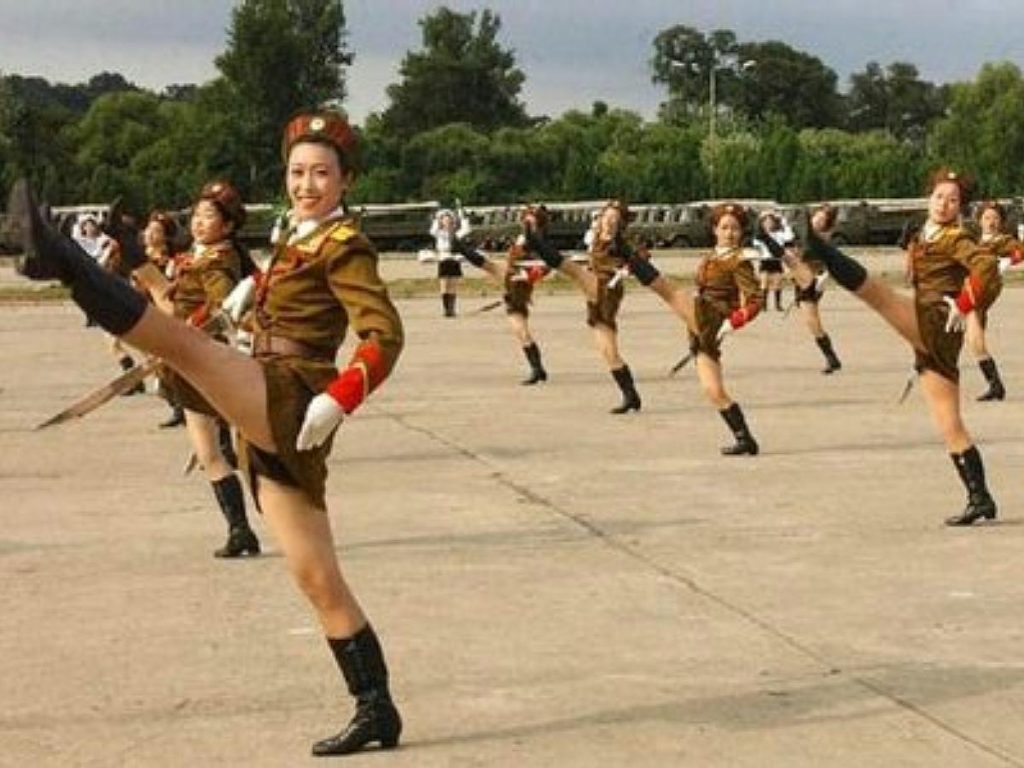
Travelling to North Korea is something not many people do because the DPRK is one of the most isolated countries in the world! Here the citizen and the person entering the country are “locked up”. Once the visit has been approved by the government, foreign travelers are no longer allowed to travel without a local guide who will not leave them alone throughout their stay. All travel in the country is limited and monitored. You will be accompanied every step of the way. Maybe not to the bathroom. In any case, the Korean Democratic People’s Republic of Korea (KDVR) is still one of the few white spots on the world map of international tourism. However, if you are interested in this country, you should be aware that you cannot do anything “on your own”.
North Korea is a country that proudly looks back on 5000 years of history. In enchanting landscapes, which are predominantly characterized by bizarre mountains, picturesque valleys and rectangular rice fields, there are scattered art-historically interesting royal tombs, pagodas and temples, which have been exemplarily restored. Due to the short distances, the well-developed motorways and the low traffic, the main sights can be easily reached. But as I said, never alone!
3. it is practically impossible to leave North Korea without official permission

The majority of North Koreans who want to evade the North Korean government are going to South Korea. Some drive over China with the help of smugglers, over the locks, and pay for their journey with a large sum of money. But when they are discovered, they are severely punished, captured or killed. The human rights violation of this country, leads the people to the greatest hardships. It has been reported several times that the people of North Korea were divided into a tripartite caste system by the state leadership. This depends on the potential opposition to the regime.
Since the end of the 1950s, members of the lowest class have been prohibited from staying in larger cities and near the state border and coasts. It has also been reported that since the drastic tightening of the supply situation in the 1990s, this group no longer receives food ration cards or other benefits from the socialist “supply state”. The fact is that the human rights situation in North Korea is described as one of the worst in the world. For this it is almost impossible to leave the country without official permission. Not even for the visitor.
4. all men wear a prescribed haircut

Dictator Kim Jong Un tells his subjects how to have their hair cut. This man wants all the male sexes to wear his hairstyle. Women can choose from exactly 18 hairstyles prescribed by the state. Men, on the other hand, have 10 haircuts. Dyed hair and modern cuts are not included. Kim Jong Un obviously has a clear idea of what hairstyles should look like: old-fashioned and conservative. 18 photos in small passport photo size, which hang in the hairdresser’s shops of the capital Pyongyang, clearly show which haircuts are allowed for North Korean women or men.
Haircut compulsion must be subjected to people of the country.
All hair must end above the ears, the forehead must remain free, the hair must not be longer than five centimeters.
When exactly did the whole “hair power” begin? The haircut compulsion apparently began in 2005 with a North Korean television program called “Let’s cut our hair according to the socialist way of life”. With a hidden camera, “rebels” who refused the hair dictate were to be taken into captivity, different media write. As popular as Justin Bieber is, especially his style in North Korea. Strands are definitely no longer possible since then. Instead, men’s hairstyles are militarily strict and resist Western hair fashions, as do the correct haircuts of women.
5. shopping areas, which are strictly forbidden for tourists
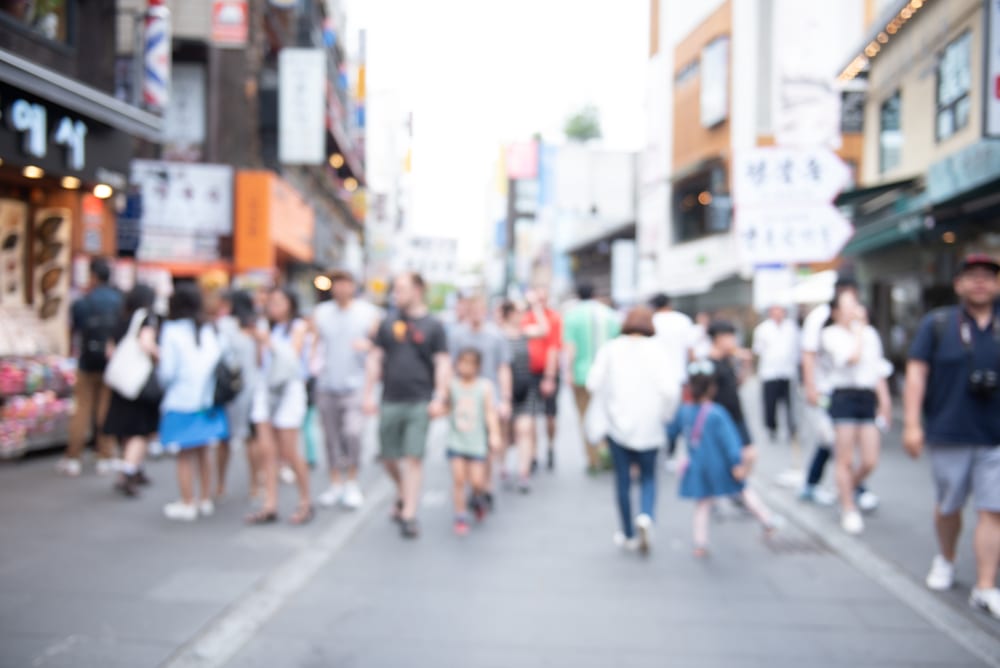
The human rights situation for the local population is extremely critical, the cult of the “Great Leader” Kim Jon-un borders on the absurd, the dispute with the USA over nuclear armament continues. But if you want to travel to the country, you should take a close look at the rules of conduct! Because these rules are so extreme and frightening, many major tour operators avoid the Asian country. They’re all insecure. As are the dictator’s subjects. As you know, as a tourist you are also not allowed to move freely in the country and need a guide. In addition, you are not allowed to visit shopping areas. These are strictly marked. However, your guide will point this out to you.
On the whole, the Foreign Ministry strongly advises against “unnecessary trips” to North Korea. Should you be noticed negatively in this country, the same penalties apply to you. The rule of law decides on the severity of the punishment. Watch your step! Even just photographing, right up to writing, certain readings, and bringing along laptops, cell phones, are considered suspicious! Please take the “cult of the Leader” around Kim Jon-un really seriously. The head of state is almost considered “holy”.
6. the capital Pyongyang as a symbol of supremacy
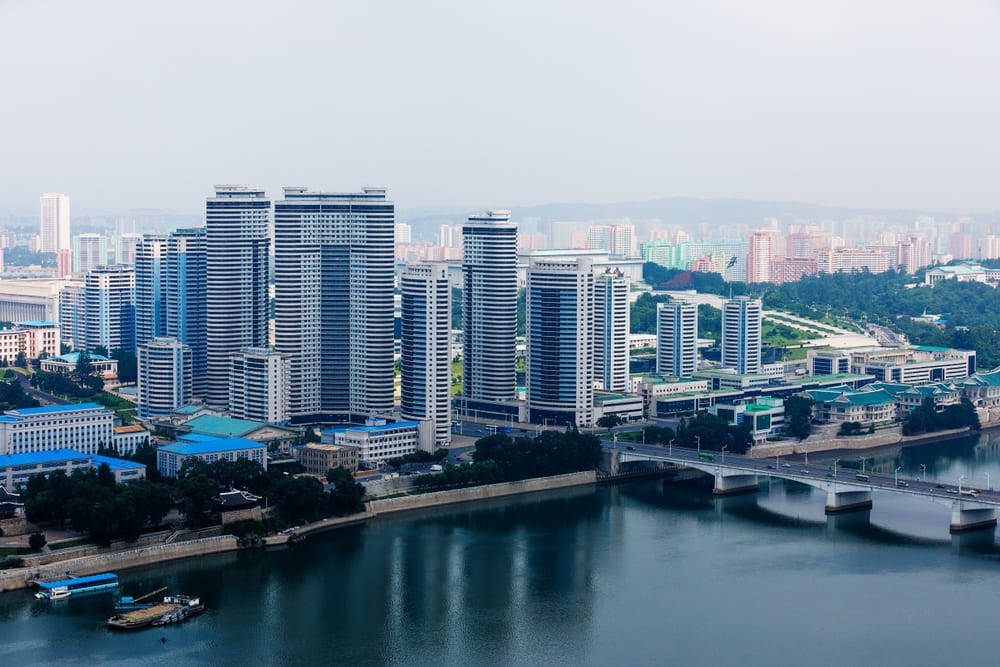
The capital is a symbol of pride for the government, which is not saving on resources to maintain the cleanliness as much as possible. The capital Pyongyang must be well cared for and presented in the best possible light to impress the outside world, while the rest of the country suffers from poverty. So a lot of money is spent on architecture. Many German architects are at work here and appreciate the North Korean architecture. The capital Pyongyang is under central administration of the government and has the status of a province. Every morning at 6 a.m. and at midnight the piece “Where are you, my beloved general?”, a war ballad in Bangchang style to motivate the masses, sounds from loudspeakers all over the city. Other songs to the sonication are “The red devotion of a nurse, The song of a blood transfusion, and My fight serves only the party.
Anyone who visits the capital of the last Real Socialist dictatorship as an architect will be welcomed at the airport by a travel companion, a driver and a translator. They make sure that the architect has nothing missing, none of the monuments in honor of the Great Kim il-Sung is missed. They have to lay flowers in front of his bronze statue and are not allowed to talk to residents. In any case, Pyongyang presents himself as a gigantic theater performance, as a projection screen for his fantasies. Despite its dependence on Chinese oil and world hunger aid, North Korea is trying to maintain its role as the simple other.
7. the rule of punishment rules over three generations

The media describe punishment as hell on earth. North Korea is a constant source of international concern. And Kim Jong-un, the ruler, also spreads fear and terror in his own country. Just like his father Kim Jong-il and his father Kim Il-sung before him. If someone violates the law in North Korea, they can go to prison or to a labour camp. Especially the remote North Korean prison camps are very feared! Experts assume that about 150,000 to 200,000 political prisoners in North Korea live their lives in these camps.
The stories that emerge from there are hard to beat in terms of cruelty. If he had to live there, “he would kill himself immediately,” the man continues. It says: “The prisoner must be starved, beaten, tortured and work himself to death”. Public executions are the order of the day – relatives who cry are also executed. In this context: The inmate is not the only one who bears the consequences: The offender’s grandparents, parents and children can also be punished.
8. the most guarded border in the world
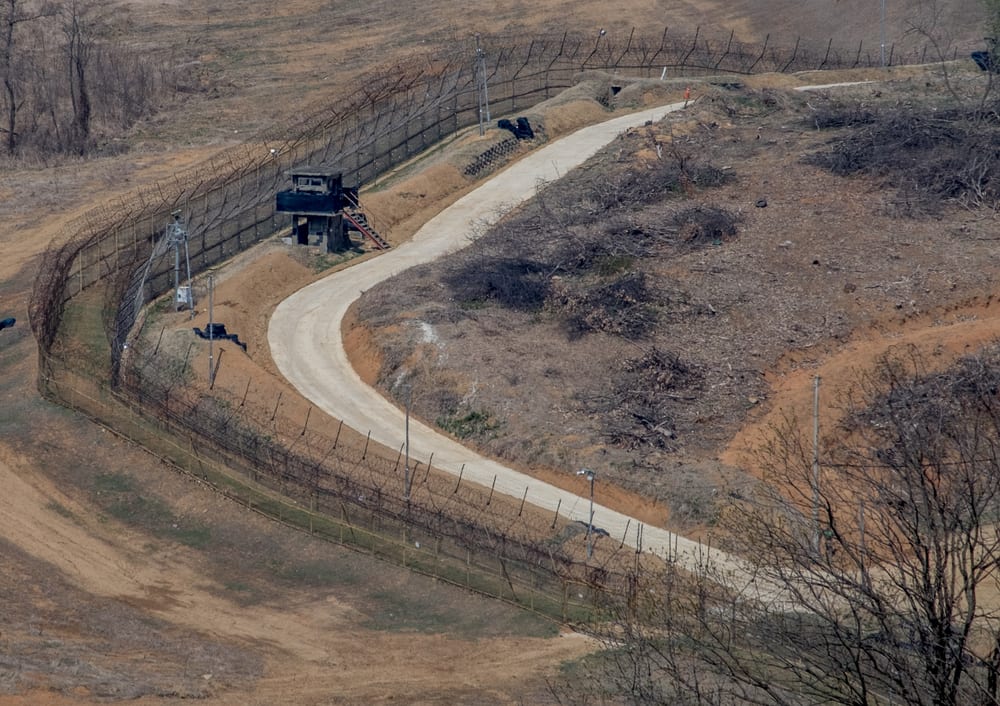
Marked by meter-high fences, barbed wire and tank barriers. Very frightening and gruesome. You mark the course of the border. The dividing line runs across the Korean peninsula, a demarcation line approximately parallel to the 38th parallel. North and south of this border extend on both sides of the strip, which is up to two kilometers wide: the 248 kilometer long demilitarized zone (DMZ), from the Yellow Sea in the west to the Japanese Sea in the east. After the Korean War, which lasted more than three years, the establishment of this demilitarized zone was agreed in the 1953 Armistice Agreement.
This buffer zone is managed by the Military Armistice Commission (MAC). The DMZ may not be entered without their permission. Between the two Koreas the icy air of the last remnants of the Cold War can be felt. A demilitarized zone 2 kilometers wide, crossed by mines and lined with barbed wire to a place framed by watchtowers. Every now and then the media report about soldiers who flee themselves in order to free themselves from cruelty. Which ultimately fails miserably.
9. In Pyongyang you must wear a badge

In some pictures of the capital Pyongyang, the people between the concrete blocks almost seem to live in freedom. Yet freedom is actually a foreign word in North Korea, this Stalinist state that is one of the most restrictive political systems in the world. The country is under the strictest surveillance. At first glance, the capital city gives the impression of a western city. But if you look closer, people still wear traditional clothes, with red Kim-Il-Sung badges.
The political system dictates and directs the fear of the people. An everyday life in North Korea like no other. Absolute taboo is criticism of Korea’s leader. Journalists describe this capital in the process of upheaval. But it’s just appearances that change little by little. Certainly not the system. Those who are allowed to live in Pyongyang are considered privileged. You’re wearing a special badge that’s not for sale. But in China you can get a fake one.
10. the vast North Korean landscape
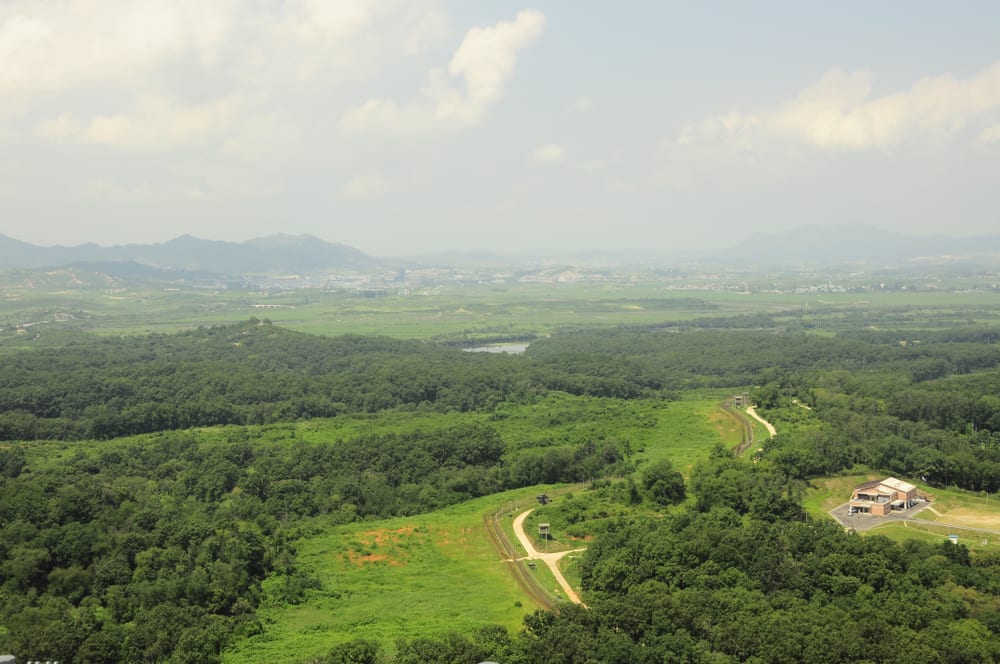
The farmland is very large and is a source of income for the inhabitants. The harvests are their food, and in this poverty-stricken country, survival is essential! Since South Korea has stopped fertilizer deliveries, North Korea has used human excrement as fertilizer. According to reports, there had already been no fertilizers for the crops in the past. In the villages, children had to bring some excrement with them to school so that it could be used as fertilizer. Families locked their cloisters so that the excrement could not be plundered.
In general, North Korea continues to suffer from chronic food shortages. A result of the highly isolated regime, multiple natural disasters and general structural deficiencies, such as a small agricultural area and a one-sided distribution of the land in favour of the military, which almost excludes the common people. The lack of food was additionally due to record flooding, and the persistent lack of fertilizer and agricultural equipment. Following an international request for assistance, the United Nations World Food Programme provided some 500,000 tonnes of food over a period of 12 months (1999-2000).






